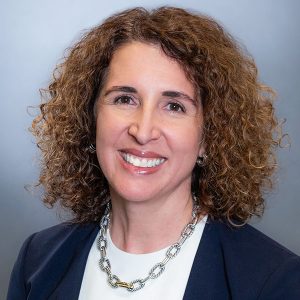As we wrap up Community Banking Month, I am thrilled to honor the ways community banks step up to champion the needs of their communities. Whether it’s through personal interactions or modern-day conveniences, community banks hit that sweet spot where relationships meet today’s technology to provide unparalleled support to the customers and communities they serve.
No other financial entity comes close to offering that high-tech, high-touch relationship that’s integral to who we are as community bankers. It’s not just about the deposits deployed in the form of loans, the contribution of thousands and thousands of dollars to the community or the countless hours spent supporting local families and businesses — it’s a combination of them all. These traits make it such an amazing industry to advocate for, because we are simply asking for what’s right so community banks can continue to work for the common good. And therein lies the difference that policymakers need to understand.
When we share our personal stories with legislators on Capitol Hill or with rulemakers, we make it real for them. The community bank story takes what may be an academic theory, rulemaking concept or well-intentioned law-in-the-making and ensures it’s relatable on an individual level. It plainly demonstrates where emerging regulations may have merits or pitfalls and how they really will affect businesses and consumers in their communities.
Community bank stories also demonstrate why legislators and regulators can’t paint with a broad brush across the financial services landscape. Our ability to differentiate ourselves and explain our relationship-based approach shows who we are as businesses and how we prioritize customer needs. This storytelling pulls concepts out of the theoretical into reality. When you can demonstrate how these topics affect the lifeblood of the community, it’s transformational.
For instance, our ability to convey how community banks differ from Silicon Valley Bank and other failed large banks enabled us to effectively advocate to keep most community banks out of the FDIC special assessment. We made it real for regulators, ultimately ensuring that the rule was being written to differentiate community banks from the rest of the industry — because we inherently are different.
So, it’s with a spirit of community bank pride that I invite you to share your story during Capital Summit (icba.org/capital-summit), taking place in Washington, D.C., from April 28 to May 1. Seize this opportunity to ensure legislators recognize the community bank difference. And in the meantime, take this month to celebrate all that you do. In the eyes of all who know your story, it’s well-earned.
Where I’ll Be This Month
I’ll be heading to Memphis for meetings with ICBA Securities and state partners, and then I’ll be attending the ICBA Capital Summit at the end of the month. I hope you will join us!









